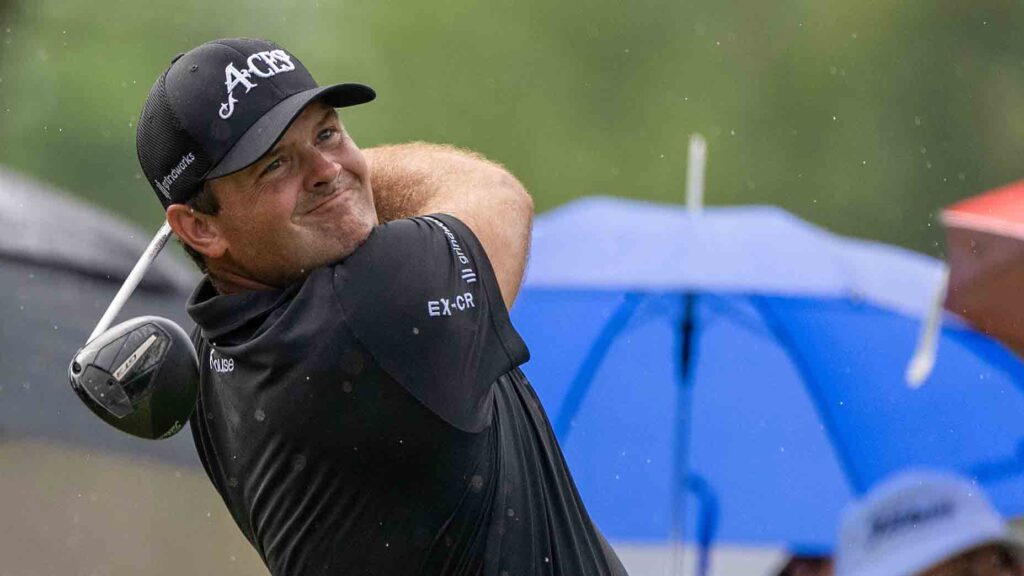Patrick Reed Addresses Family Harassment Amid Cheating Allegations
In an emotional conversation with AFP, Patrick Reed has opened up about the profound impact that cheating allegations have had on his family. The professional golfer expressed concerns regarding the bullying that his children are facing as a direct consequence of the controversies surrounding his integrity on the golf course. As one of the sport’s more polarizing figures, Reed’s situation sheds light on the broader implications of public scrutiny for athletes and their loved ones.
Reed, whose career has seen its share of ups and downs, is no stranger to controversy. Allegations of cheating have plagues him, leading to divided opinions among golf fans and analysts. However, the latest revelations about his family’s experiences reflect a troubling trend where athletes’ personal lives can become casualties amid public judgment. The emotional toll on Reed’s family underscores the stakes involved when a public figure is embroiled in a scandal.
In today’s digital age, social media can amplify scrutiny. Reed’s children have reportedly faced bullying at school related to their father’s involvement in these cheating scandals, which has taken a noticeable toll on their everyday lives. Patrick Reed’s statements highlight the vulnerability of family members who have to navigate the fallout from their loved one’s public image, showing how the pressure of being related to a high-profile athlete can extend far beyond the individual.
The implications of these events resonate with many in the sporting community, sparking conversations about athlete responsibility both on and off the course. As Reed continues to defend his reputation, the challenges faced by his family open a dialogue about the human aspect of sports and the unintended consequences that come with it. It raises a pertinent question: At what point does public condemnation become harmful to those who are not directly involved?
In his interview, Reed emphasized that the allegations against him aren’t just a professional setback; they’ve turned personal, affecting his children and wife emotionally and socially. Many professional athletes often find their families thrust into the limelight due to their careers. The repercussions can be drastic, turning what should be a supportive environment into a battleground for public opinion.
The turbulent nature of Reed’s situation serves as a stark reminder of the responsibilities that come with fame. As athletes become public figures, they must also contend with the reality that their actions can have lasting effects on their loved ones. This sentiment resonates deeply with fans and detractors alike, reflecting the dual nature of admiration and criticism that often accompanies success in sports.
In the wake of these developments, it’s crucial for sporting organizations and the public to foster a culture of compassion and understanding. Bullying, especially related to an individual’s profession or choices, needs to be addressed head-on. Patrick Reed’s situation exemplifies the far-reaching impact of online discourse and public opinion, reminding us all of the human element at the heart of sports.
Furthermore, Reed’s comments on this issue could spark a movement toward mental health awareness within the athletic community. Athletes often face immense pressure, and it’s crucial to acknowledge how allegations, controversies, and public pressure can affect their mental well-being and that of their families. By sharing his experiences, Reed may open up dialogue around the importance of mental health support in sports.
As the controversy continues to unfold, Patrick Reed remains committed to proving his integrity on the course. His determination to weather this storm, while also advocating for his family’s well-being, is commendable. The golf community and sports fans alike will be watching closely to see how this narrative develops and what responses emerge from both Reed and his critics.
In conclusion, the allegations surrounding Patrick Reed go beyond the realm of sports; they touch on fundamental issues related to sportsmanship, family dynamics, and public perception. As Reed navigates this challenging path, the lessons learned extend far beyond the golf course, offering insights into the pressures faced by athletes today and the importance of empathy within the sporting community.


